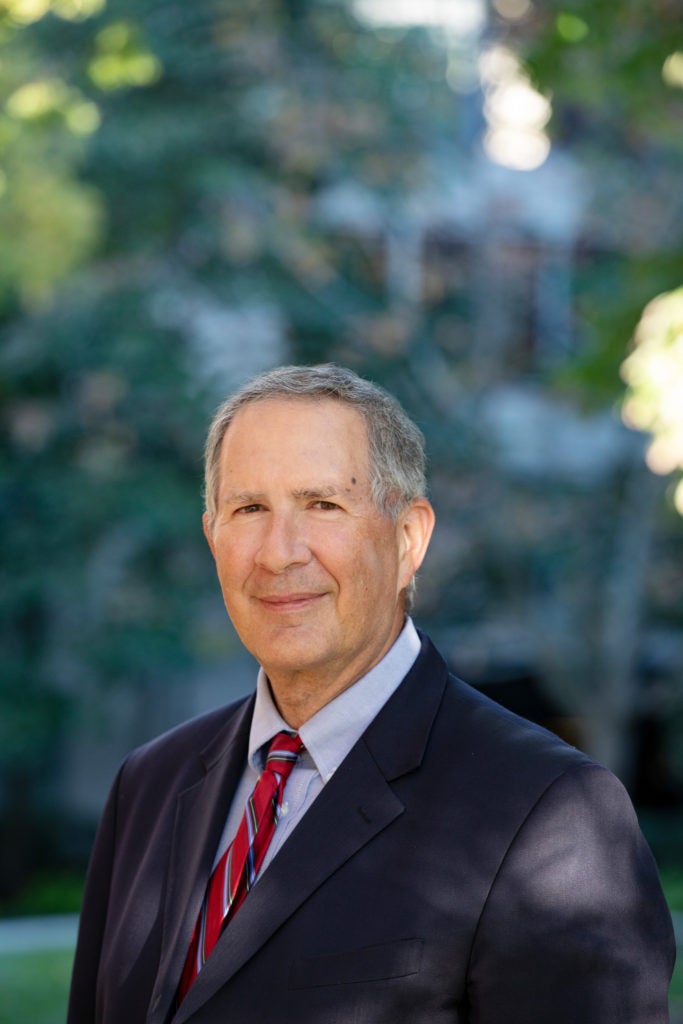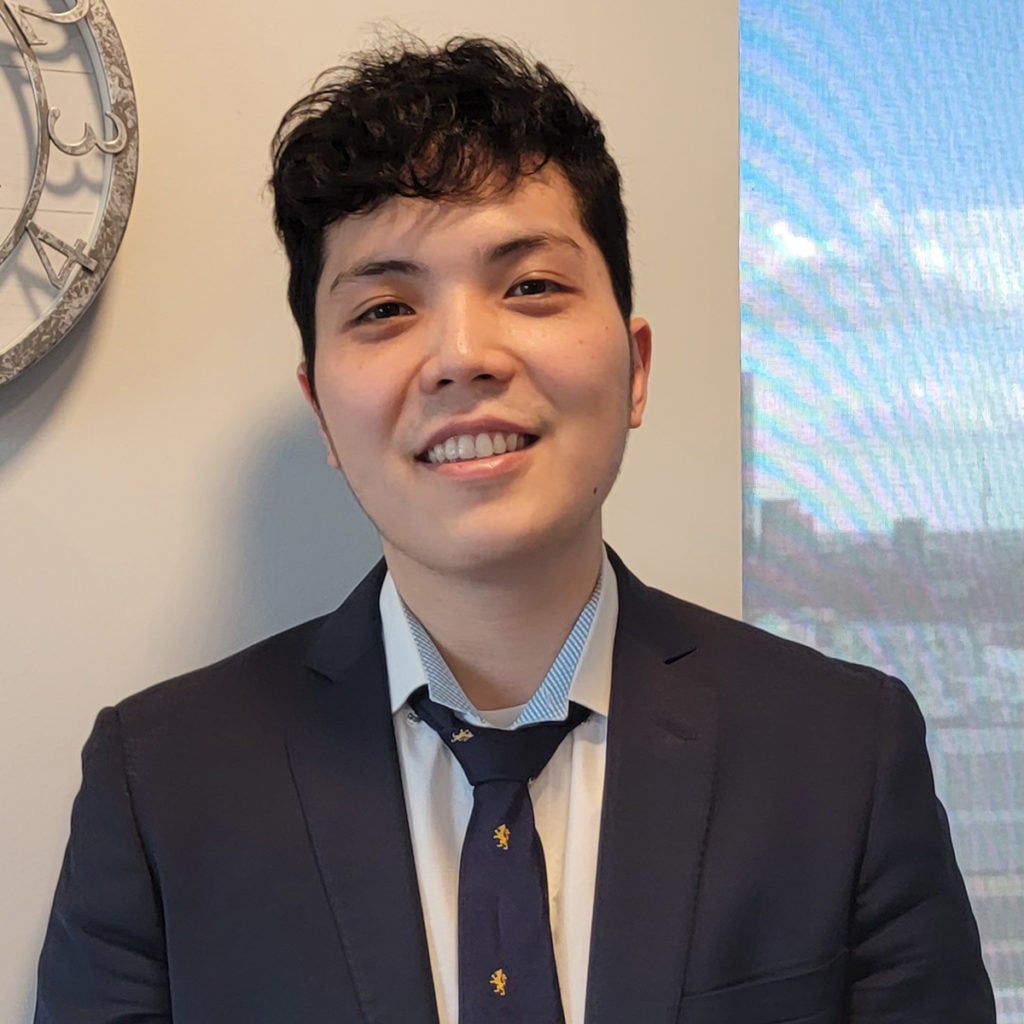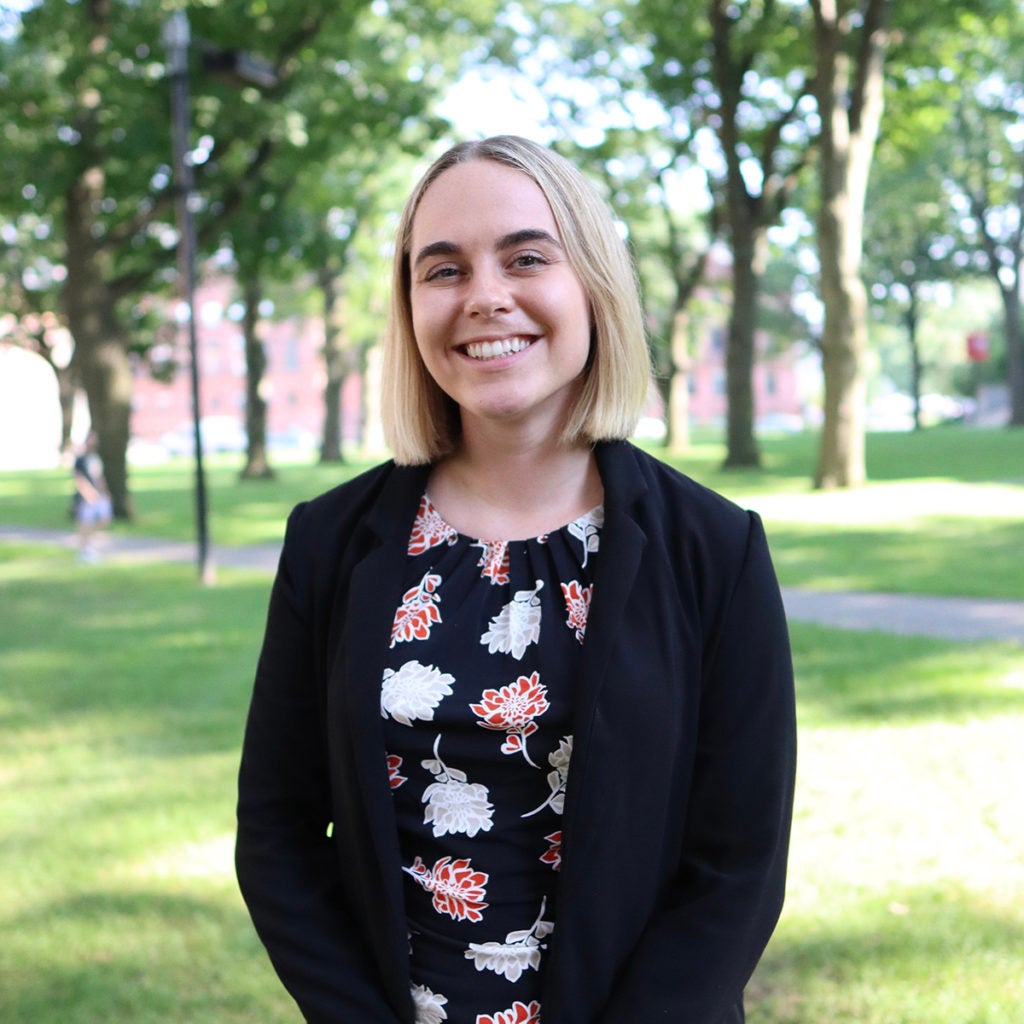Everyone knows the old saying about death and taxes, and it’s hardly a secret that filing income taxes — and communicating with the Internal Revenue Service — can be complicated, at best. But for the millions of Americans who are delinquent on their taxes, and particularly for those on a low- or fixed-income, receiving an unexpected bill from the IRS can be a devastating new source of anxiety.
“If you have kids, if you have a job, if you have other responsibilities, you can’t just sit on the phone with the IRS all day,” says Lauren Deutsch ’22, a student in Harvard Law School’s Federal Tax Clinic.

Keith Fogg is director of the Federal Tax Clinic and a clinical professor of law.
But relief is within reach, thanks to Deutsch and fellow students in the clinic, which is part of the WilmerHale Legal Services Center of Harvard Law School. Led by Keith Fogg, clinical professor of law, the Federal Tax Clinic serves low-income taxpayers, many in the Boston area, who are dealing with IRS collections matters — assessed tax liabilities from prior years that they believe are incorrect or too burdensome to pay. By understanding each person’s life circumstances, clinic students work with the IRS to try to reduce, delay, or even eliminate these outstanding debts — and the stress that comes with them.
“The clinic is very individual-focused, and very much focused on getting to know the client’s situation,” says Jonathan Blake ’22, who has participated in the clinic for more than two semesters. “Because a lot of times a tax issue is intertwined with everything else that is going on in a person’s life.”
Veterans, people with disabilities, those who lost family members, businesses, or their jobs during the pandemic — the clinic’s clients are a diverse group, as are the possible solutions to their tax burdens. “These can include any combination of compromise, halting collection for a period of time due to current hardship, or correcting any mistakes that were made in tax assessment, whether it was on the taxpayer side, or on the IRS side,” says David Lee ’23, who is also a student in the clinic.
First and foremost, says Blake, the clinic acts as a liaison between clients and the IRS, helping to demystify the process and uncover options. “Those of us in the clinic almost always deal exclusively with the IRS, given that our clients can understandably get nervous and frustrated doing so,” he says.

While every person’s case is unique, Deutsch, Lee, and Blake all agree that some patterns have emerged this year, with many clients still experiencing fallout from the pandemic. “First of all, we have clients who had COVID, and are still suffering from it,” says Deutsch. “And when everything else falls apart, your taxes are one of the last things on your mind.”
For others, the loss of a job or business has caused spiraling problems. “Some of my clients have seen their entire business model pretty much evaporate due to COVID,” says Lee. “In the COVID aftermath, they were often forced to work in a completely different industry for much lower pay. Then, some became ill or were injured as soon as they made the change, further destroying their options. It’s really been a series of unfortunate events.”
Blake says some clients qualify for a hardship reduction, meaning they can get a break on some or all their debt — but they need the clinic’s help producing the necessary documentation, which can be voluminous. Others have escaped difficult personal situations, such as domestic violence, only to later face tax problems, says Deutsch. “A lot of abusive spouses coerce their — typically, wives — into signing their tax forms, and end up sticking them with a tax liability that they didn’t even have knowledge of, and shouldn’t be legally responsible for,” she says. By helping these clients challenge their debt, “you are getting one small thing off the shoulders of people who have been through so much.”
The clinic also works with After Innocence, an advocacy group, to support exonerees with tax issues. “These are people who have been wrongfully incarcerated, and are now out, and are trying to put their lives back together,” says Deutsch. “They have already been victimized by one legal system and are now in a sense being victimized by the tax system.” The clinic, she adds, offers a way to obtain justice in a small way.
“The clinic is very individual-focused, and very much focused on getting to know the client’s situation, because a lot of times a tax issue is intertwined with everything else that is going on in a person’s life.”
Jonathan Blake ’22
Different clients have different needs, the students say, and the clinic has helped them learn how to adjust their approach for each person. When one of Lee’s clients, who suffers from mental health challenges, was initially skittish and only intermittently responsive to his communications, Lee and Fogg partnered with them to find a better way to build trust.
“We asked our client to visit the clinic in person so they could ascertain our sincerity and get to know us better than they could via the phone or email,” says Lee. “Because of that approach, they now feel a lot more comfortable, and we’ve been able to make progress on their case. It’s really given me valuable insights on how to better understand and work with various individuals.”
And although the tax clinic’s main focus is on client-facing work, it also provides opportunities for students to advocate for policy as well. Deutsch says she drafted and submitted two sets of comments on proposed Department of Treasury regulations this year, even testifying in a public hearing on one of them. She says the experience helped her better understand how tax regulations are developed. “When I learned about the process in [the law school course] Legislation and Regulation, it was initially very mystifying,” she says. “But then, having actually taken part in it — it’s a lot different than I had expected.”

The clinic also weighs in on tax issues before the courts. Recently, Blake collaborated with Fogg on an amicus curiae — or friend of the court — brief filed by the Center for Taxpayer Rights in Boechler, P.C. v. Commissioner of Internal Revenue, a case currently before the United States Supreme Court. The clinic is also hosting the International Taxpayer Rights conference in May, which will bring together practitioners, scholars, and government officials to discuss taxpayer issues in the post-COVID world.
The students credit Fogg, who is retiring in July and will be succeeded by clinical instructor Audrey Patten, with building the tax clinic into an avenue for justice. “Keith is a leader in the field,” says Blake. “He’s well-connected, and he formed many of the partnerships and developed many of the external opportunities here — ones I don’t think would have been available at any other law school.”
‘The impact … cannot be overstated’
Even as the student attorneys work to change the lives of their clients, they say their own lives have changed, too. Lee plans to work in the corporate tax world after graduation, and says he hadn’t thought much about the individual taxpayer experience before this.
But the Federal Tax Clinic “really opened my eyes to what exactly constitutes meaningful work,” he says, adding that he no longer limited that category to big, “headline-grabbing” deals. “I’d just like to continue engaging in similarly meaningful pro bono opportunities in my career. It has also given me a lot to think about for my career trajectory as a whole.”
It’s a sentiment with which Deutsch, who also plans to work in corporate law, agrees. “I now see that there are all these problems, and there are tangible ways to help,” she says, adding that she plans to prioritize pro bono work in her career as well. “Attorneys have the skills to make a difference.”
“For a good majority of our clients, getting help represents a fresh start in their lives … the mitigation of their tax liabilities represents a way to put their lives back in order, to start being able to support their families once again, to stop worrying so much.”
David Lee ’23
Blake says the clinic has given him better interviewing skills, including how to have difficult conversations, experience he will need as a corporate attorney. “They can be difficult in the sense that we can’t always achieve the outcome that we want. And it’s not for a lack of trying, or that we thought from the get-go that it was going to be a doomed effort. It’s just that the answer isn’t always going to be the one you’re hoping for.”
But sometimes it is — and relief can come in many forms for clients. “A lot of people, even if they’re well-educated, don’t understand the process of interacting with the IRS and filing paperwork. And often, people put it off, and then the problem snowballs. One’s mental health can really be impacted,” says Blake. “What can be most impactful about this work is being able to offer peace of mind.”
And second chances, adds Lee. “For a good majority of our clients, getting help represents a fresh start in their lives. Until now, they’ve faced serious challenges, whether they’re family issues, illnesses, or simply bad luck. The mitigation of their tax liabilities represents a way to put their lives back in order, to start being able to support their families once again, to stop worrying so much. And for some people, they want to chase their new newfound dreams. The impact of forgiveness cannot be overstated.”
